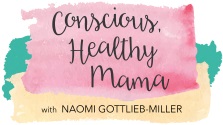“Should” is a four-letter word.
SHOULD is just as bad as the other four-letter words I’d rather my daughter not repeat.
Should is the word that trips us up the most.
“I should eat healthier foods.”
“I should go to bed earlier.”
“I should get to yoga more often.”
Should is just another way to blame and shame. Should doesn’t usually motivate me to act, at least not in a healthy way. Should usually motivates me to feel guilty and act in ways that don’t make me feel good.
Should’s are the enemy of self-care.
Self-care isn’t what I should do.
Self-care is what I WANT to do.
Self-care is what I NEED to do.
Yes, this is semantics. Should vs want vs need.
Words matter.
How we use our words makes a difference.
Saying “I should eat healthier” sounds and feels different than “I want to eat healthier” and sounds and feels even more distanced from “I need to eat healthier.”
Should gives me an exit strategy.
I don’t have to commit 100% because even though I should do something, I probably won’t.
Should gives me all of the excuses and validates them.
Should is based more on what I think other people think of me and how that perception is fueling my choices. Or my non-choices.
Should allows me to get away with those choices that don’t make me feel so good.
So naturally, Should also makes me feel bad about myself. As in, “I should take better care of myself, but I don’t.
This is why self-care cannot coexist with Should.
Self-care is a want. Self-care is a need.
Self-care isn’t something I feel like I should do. Self-care is something I want to do because it makes me feel more human. Self-care is something I choose to do because I need to take great care of myself.
Self-care is something I do because personal care is one of my basic human rights.
Here’s the important thing to remember:
Self-care isn’t just about the ACT of taking good care of myself; the quality and impact of self-care is dependent upon the INTENTION motivating the act.
Without a clear intention, self-care becomes a SHOULD and another task on my to-do list instead of a treasured, nourishing, vital act of self-care.
Words matter, even when they are words I only speak to myself.
I’ve been working on this lately. Modifying my language is becoming an essential part of my self-care.
Recently, I was exhausted and irritable at night as a result of 2 kids who refused to go to sleep at a reasonable hour. I was getting crankier by the minute while wearing my wide awake baby, which made me wired and tense. By the time kid #2 finally fell asleep, all I wanted to do was crash in a puddle on my bed, but in the back of my mind was, “but my evening self-care rituals….I should be doing them!”
I immediately felt my body resist. I could feel a twinge of resentment creep into my mind. I had to check myself and ask, “why do I practice these daily acts of self-care anyway? To check them off my list? To say I did them? To prove that I can?”
The answer to all of these is “no.”
I add these daily self-care practices in to feel better in my body. I practice daily self-care to reconnect with my needs and do things I love. I add adjust my self-care practices regularly to ensure I am taking good care of myself so I am physically, mentally, emotionally, and spiritually healthy.
So instead of giving in and collapsing in a puddle on my bed, I changed my language and my attitude. As I washed my face, I thanked myself for taking this time for me. I cleaned off the frustration and crankiness. As I wrote in my gratitude journal, I thought about the sweet moments that had happened during the day and smiled. As I massaged my feet with oil, I rubbed in a little extra love saying to myself, “I am doing this to calm me down and to ground me after a long, tough night. This will help me fall asleep and sleep deeply.”
And you know what? It worked.
My body softened. I felt grateful and more relaxed. I fell asleep almost immediately.
Next time you feel a Should rising up, do these 3 things:
~Ask yourself if it is something you really want or need.
~If it is something you truly want or need, change the language and say, “I want ____________” or “I need ____________.”
If it’s not really something that you want or need, BE HONEST. Complete the “I should” sentence with, “but I don’t really want to.”
~And when you are practicing your sweet acts of self-care, infuse it with an intention. Rather than making your self-care a Should” on your to-do list, make it the treasured, valuable, nourishing act of care that it is.



